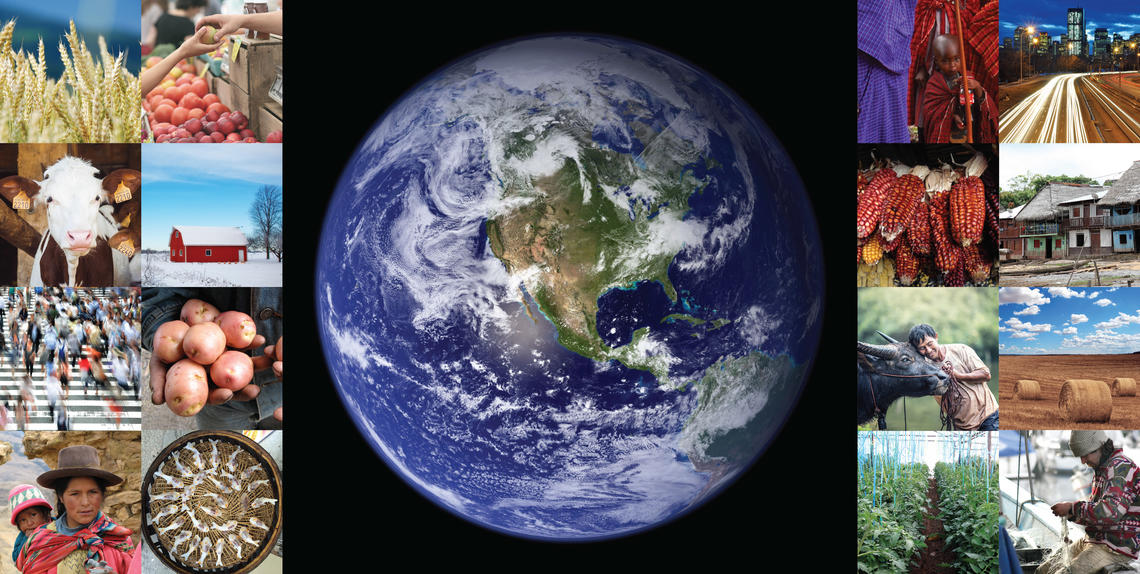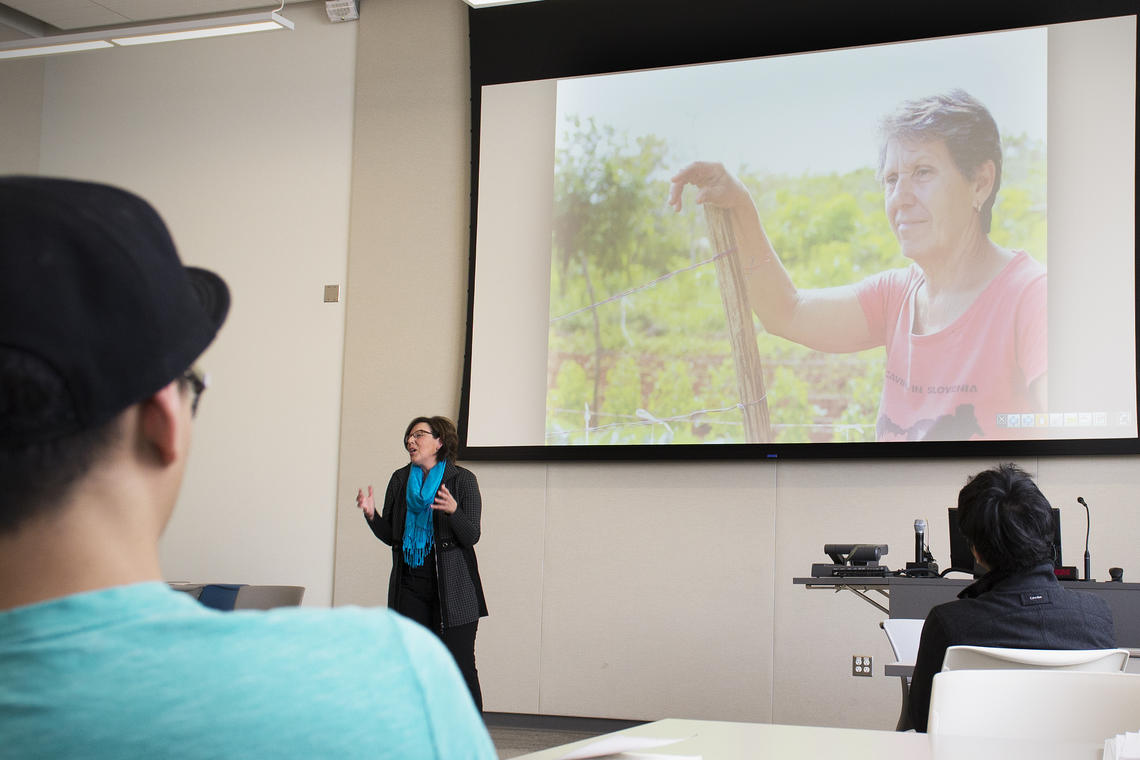March 1, 2017
College for Discovery, Creativity and Innovation launches UNIV 201: Global Challenges course

The UNIV 201: Global Challenges course is designed to be a signature program at the university.
There are few initiatives on campus as bold in their inspiration as the College for Discovery, Creativity and Innovation (CDCI). The CDCI is the arm of the Taylor Institute for Teaching and Learning dedicated to the promotion of high-impact approaches to student learning, in the context of addressing global issues of vital importance to our collective future.
When confronted with the challenge of operationalizing such a venture, the CDCI's new director, Jay Cross, is quietly pragmatic. "The challenge associated with creating and breathing life into the CDCI is harnessing the considerable energy that is out there in the university community and from anyone in the outside community that has heard about this initiative. We have to capitalize on that energy and manage the first steps in what will be a long journey."
Feeding nine billion people by 2050
The inauguration of the Global Challenges course in January was the first big step for the CDCI. The course calls together students from different undergraduate programs to collaborate in examining how the world's most pressing issues can be addressed. It is designed to be one of the signature programs of the University of Calgary undergraduate experience, incorporating components of inquiry-based, experiential and community-engaged learning, and undergraduate research.
The global challenge identified for study in this year is feeding nine billion people by 2050. "One could understand this theme as saying our population in 2017 is seven billion people, so the challenge is how to feed two billion more. But it's much deeper than that," says Cross. "For example, if you think about our community in Calgary, the availability and quality of food is affected by socioeconomic status, poverty, the state of the economy, mental illness and other things. We want our students and faculty to be engaged in conversations that are global in nature, while broadening their understanding of the issue in a local context.”

Jay Cross is the new director of the College for Discovery, Creativity and Innovation.
Jessica Snow, Taylor Institute for Teaching and Learning
A global challenge seen through an interdisciplinary lens
The Global Challenges course leverages interdisciplinary perspectives and considers the challenge from multiple angles. Shahirose Premji and Robin Mueller are the two instructors tasked with facilitating the two sections of the course. For Premji, the diversity of the students and their perspectives only enriches and adds further dimension to the material.
"Students are from engineering, social science, arts and science. I think what amazes me is that they could be reading the same text and they would pick up something very different than what others would pick up on. The dialogue is very rich because we all have something different to bring to the conversation."
High-impact approaches to student learning
Through inquiry-based learning, students define core subjects associated with the global challenge and engage with mentors, instructors and community members who help them direct their learning and research. Even after just six weeks of the course, the difference in the approach has been remarkable for students.
Michael Do, a second-year open studies student who is hoping to transfer to neuroscience, says, "I really like it because it's a different approach to how classes usually are at the university. You are accountable to yourself as to how you learn the material."
In the second half of the course, the students will go through a creative process to produce an innovation and pitch it to fellow students and engaged community members. An event is planned for mid-March that will allow students to test and explore the potential of their ideas with representatives from government, industry and the non-profit sector.
Cross hopes these relationships will eventually evolve into an even larger conversation about innovation and research. "There are people in the community, government and industry that have questions about how to put research into action. We are looking at different models of bringing researchers together with relevant community members, and at how to build relationships of trust and maintain ongoing conversations, not just around individual projects but sustained models of innovation."

Speaker Brenda Schoepp has a diverse background in farming and international development.
Jessica Snow, Taylor Institute of Teaching and Learning
How to engage with the CDCI
“These courses and the people involved — the students, the instructors, the Community of Scholars, the CDCI director, and countless others — are foundational to the Taylor Institute’s mission of bringing people together from across campus to prioritize meaningful student learning. This first set of courses is truly a milestone for the University of Calgary,” says Nancy Chick, academic director of the Taylor Institute. There are several ways in which the campus and external community can get involved with the CDCI:
- CDCI Community of Scholars: Academic staff across campus form the Community of Scholars that guides and supports the development of CDCI programming.
- Learning partnerships: The CDCI is looking to foster partnerships with faculties and units across campus, within the context of high-impact learning approaches or through initiatives that have a thematic crossover with the Global Challenges course.
- Community engagement: Members of the campus community, government, industry and the non-profit sector are invited to participate in the Global Challenges course as guest speakers or mentors or to participate in the Global Challenges Speaker Series, which will commence in the fall.
- Register for the Global Challenges course: Undergraduate students from across disciplines are welcome to register for the fall 2017 sections of UNIV 201: Global Challenges Inquiry I.
